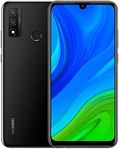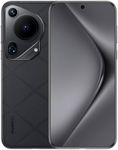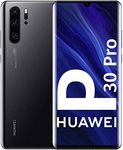Buying Guide for the Best Huawei Phones
Choosing the right Huawei phone involves understanding your needs and matching them with the phone's specifications. Huawei offers a range of phones with different features, so it's important to know what each spec means and how it affects your experience. Here are some key specifications to consider when picking a Huawei phone and how to navigate them to find the best fit for you.DisplayThe display is the screen of the phone, and it's important because it's where you interact with your device. Displays come in different sizes and resolutions. Larger screens (6 inches and above) are great for watching videos and gaming, while smaller screens (under 6 inches) are more compact and easier to handle. Higher resolution (Full HD, Quad HD) means sharper and clearer images. If you use your phone for media consumption, go for a larger, high-resolution display. For basic use, a smaller, lower-resolution screen will suffice.
Battery LifeBattery life determines how long your phone can last on a single charge. It's measured in milliampere-hours (mAh). Higher mAh means longer battery life. Phones with 4000mAh or more are ideal for heavy users who need their phone to last all day. If you use your phone less frequently, a battery around 3000mAh should be sufficient. Consider your daily usage patterns to choose the right battery capacity.
Camera QualityCamera quality is crucial if you love taking photos and videos. Huawei phones often come with multiple cameras, including wide-angle, telephoto, and macro lenses. Look at the megapixel (MP) count and aperture size; higher MP and lower aperture (f/1.8, f/2.0) generally mean better quality. For casual photography, a phone with a decent 12-16MP camera will do. For professional-level photos, look for higher MP and additional camera features.
ProcessorThe processor is the brain of the phone, affecting its speed and performance. Huawei phones use different processors, like Kirin or Snapdragon. Higher-end processors (Kirin 9000, Snapdragon 888) offer better performance for gaming and multitasking. Mid-range processors (Kirin 710, Snapdragon 660) are good for everyday tasks. If you need a phone for heavy-duty tasks, go for a high-end processor. For basic use, a mid-range processor will be sufficient.
StorageStorage determines how much data you can keep on your phone, including apps, photos, and videos. Huawei phones come with varying storage options, typically ranging from 64GB to 512GB. More storage is better if you store a lot of media or install many apps. For light users, 64GB might be enough. If you need more space, consider 128GB or higher. Some phones also offer expandable storage via microSD cards.
RAMRAM (Random Access Memory) affects how well your phone can handle multitasking and run apps smoothly. More RAM (4GB, 6GB, 8GB) means better performance, especially for gaming and running multiple apps simultaneously. For basic use, 4GB of RAM is usually sufficient. If you are a power user or gamer, consider 6GB or more to ensure smooth performance.
Operating SystemHuawei phones run on EMUI, which is based on Android, but newer models may use HarmonyOS. The operating system affects the user interface and available features. EMUI offers a familiar Android experience with Huawei's customizations, while HarmonyOS is designed to integrate better with other Huawei devices. Choose the OS based on your preference for interface and ecosystem compatibility.














